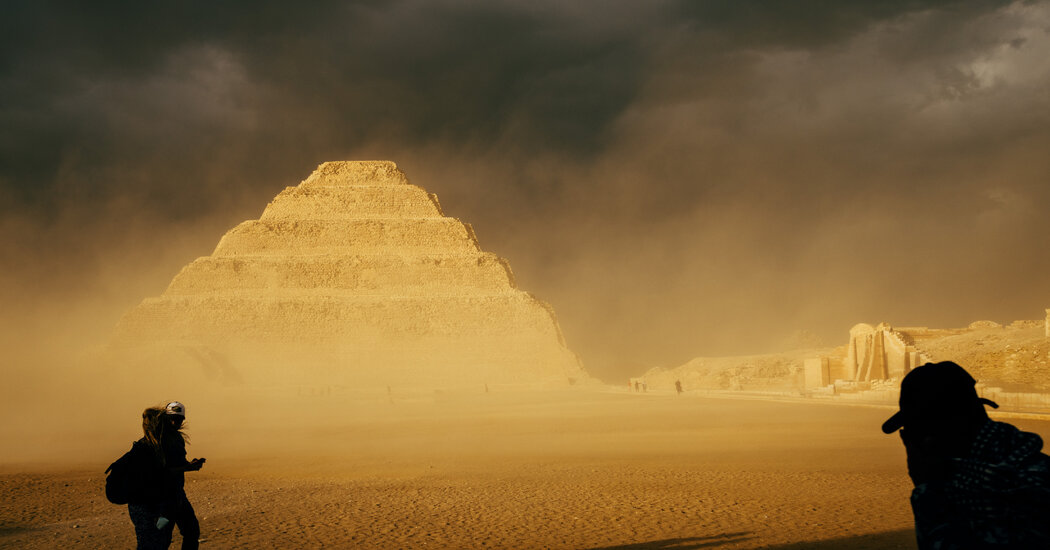“Yallah, yallah, yallah! Woooo!”
I was visiting the pyramids of Giza, Egypt, in the company of Mark Lehner, a renowned Egyptologist, when suddenly a series of voices erupted and echoed throughout the site. Our small group turned to face the commotion, wondering what had happened — and if anything was wrong.
Instead, we saw the cheery faces of an approaching group of men running barefoot through the sand, some of them with bags and other equipment in tow. Their faces were sweaty under the sun, and their loads heavy, but their frequent whoops gave the scene a sense of celebration.
As it turns out, their jovial entry coincided with our own arrival at Dr. Lehner’s dig site, where the archaeologist and his team from the Ancient Egypt Research Associates, or A.E.R.A., are uncovering the Lost City of the Pyramids.
The energetic workers are led by Sayed Salah, whom they respectfully refer to as their “rais,” the Arabic word for “leader.” Their excavation work is grueling and laborious — but there’s a subtler, deeper level to it, as Dr. Lehner explained.
Many of the men, most of whom are from Abusir, a small town near Saqqara, see themselves as part of an esteemed team, one that links them all the way back to the Egyptians who had initially erected the pyramids.
Evidence uncovered in the last several decades suggests that the workers who built the great pyramids were not enslaved laborers, as has long been popularly believed. In fact, the work was likely done by paid laborers who were housed in nearby barracks. According to papyri fragments discovered by Pierre Tallet, an Egyptologist and the co-author (along with Dr. Lehner) of the book “The Red Sea Scrolls,” the work was considered a noble, respectable profession.
And the parallel between the high spirits of the workers of today and a new picture of those of the past was clear to see. In addition to the bonuses and celebration feasts that come along with this job, these men staunchly believed they were continuing the important work of their innovative predecessors.
I was in the presence of Dr. Lehner and his contemporary crew as part of a history-driven private tour of Giza’s pyramids, organized by the travel company Your Private Africa. On special occasions, Dr. Lehner partners with the group to lead historical journeys across Egypt for guests and patrons of his archaeological and research projects, a body of work that spans nearly 40 years.
My last visit to the pyramids was almost exactly…
Click Here to Read the Full Original Article at NYT > Travel…
